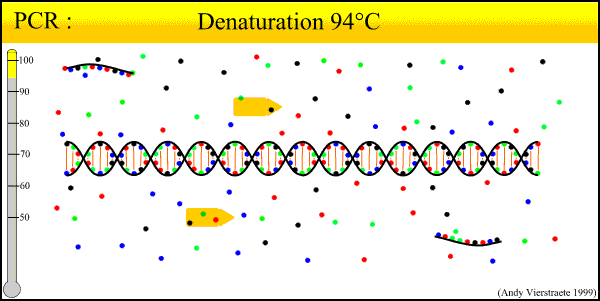Submitted by Aspergillus Administrator on 23 February 2010
Diagnosis of an invasive aspergillosis infection can be very difficult, partly because some of the techniques used can take up to 2 weeks to carry out (culture) and others simply don’t work for some forms of infection while they do in others (Reference).
Diagnosis of invasive aspergillosis has to be as quick as possible as in some cases the rate of infection is very rapid. PCR (Polymerase Chain Reaction) is a technique which allows specific DNA sequences to be detected and analysed very quickly – in a matter of hours. It can detect extremely small amounts of material and can be very specific, detecting one molecule in many billion, so for these reasons it has great potential to detect infecting organisms using only blood samples taken from the patient. Unsurprisingly it is being developed for use in aspergillosis and though there are many challenges to its success substantial progress has been made.
One of the major blocks to advance in this and any other similar technology is the lack of agreed standard protocols for everyone to use. There are many groups around the world working on this technology and initially each will have their own best method, but such is the sensitivity of PCR each method may well give different results. For further progress to be made everyone needs to use one agreed set of protocols.
This latest paper announces that this process has been started. There is now an agreed standard (optimised) method for the extraction of DNA from Aspergillus from a clinical sample of whole blood – the crucial first step in the PCR process.
Results from any lab that uses this protocol will now be directly comparable with each other, so if a lab comes up with a modification of the next step (e.g. primer preparation, thermal cycling) that improves the result (e.g. better sensitivity, fewer false positives/false negatives) then all will be able to repeat the modification knowing that they carried out the initial steps in exactly the same way, and will thus be able to directly compare the results. If it is an improvement then it will be adapted much more quickly than before.
As a direct result of this work the development of PCR for use in the diagnosis of aspergillosis will be speeded up.
News archives
-
Title
Date



